Europe and Islam: A clash of failures
France and Islam each hold out a universal promise for the world. And in each other, they see that promise revealed as a lie.

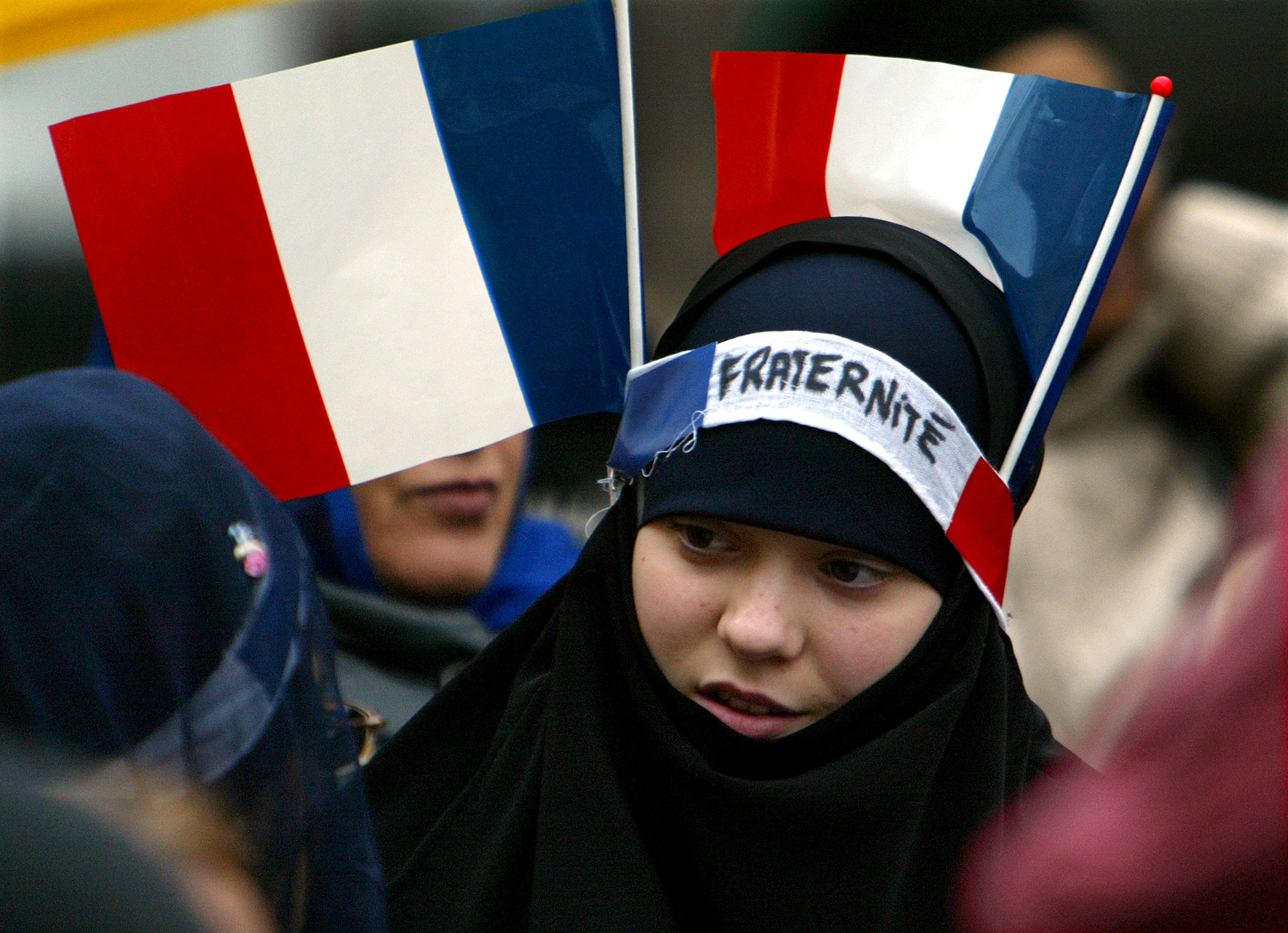
A free daily email with the biggest news stories of the day – and the best features from TheWeek.com
You are now subscribed
Your newsletter sign-up was successful
After the Charlie Hebdo attacks in January, and the horrific terrorist attacks in Paris this month, everyone has hastened to remind themselves that some of the first responders, and best citizens of France, are Muslims. This much is true.
But it's also true that Islam and France are in a complicated dance. Up to 70 percent of France's prison population is Muslim. Intellectuals fantasize about a religious revolution that is an Islam "Made in France." Michael Houellebecq's novel Soumission imagines Islamic vitality buying off French passivity and nihilism and bringing national renewal. Others see the encounter between France and Islam looking like the Clash of Civilizations, as imagined by Samuel Huntington.
But in truth, it is a Clash of Failures. France and Islam each hold out a universal promise for the world. And in each other, they see that promise revealed as a lie.
The Week
Escape your echo chamber. Get the facts behind the news, plus analysis from multiple perspectives.

Sign up for The Week's Free Newsletters
From our morning news briefing to a weekly Good News Newsletter, get the best of The Week delivered directly to your inbox.
From our morning news briefing to a weekly Good News Newsletter, get the best of The Week delivered directly to your inbox.
As I wrote last week, for some Muslims, the modern world presents a crisis for Islam. If Allah grants victories to the faithful community of believers, then Islam's current situation is a problem. The Islamic world has been in retreat for decades, if not centuries. The exit of colonial powers has left the Middle East and surrounding regions to corrupt governments, seduced by foreign intrigue or foreign aid. Globalization sends constant reminders of the economic superiority of the West into the Muslim world, along with messages preaching the superiority of Western hedonism, human rights, and feminism. For certain Muslims, this is not an unfortunate turn in history, but a sign of the Muslim world's defection from Allah. Islam must be purified to restore the ummah to the conditions of the early centuries of the faith. Islam's failure to conquer, or even to produce workable, livable arrangements with its own domain, becomes an invitation to fundamentalism and conflict.
Something similar is happening to French society. After World War II, France devoted itself evermore fully to its conceptions of universal values. France disavowed political nationalism, and joined the European project with enthusiasm. France was to show that if French men were to become Nietzsche's last men, well, what's wrong with that? Every man wants to be free, prosperous, leisured. History has a direction, away from religion, prejudice, divisive nationalism, and toward reason. History was a march toward universally applicable and universally appealing human rights. In a few years, the sons of Algerian and Iraqi immigrants will drink coffee, a little Bordeaux too. They will pretend to be existentialists, and organize to keep French working hours distinctively French. Everyone in their heart wants this, no?
It turns out not. The radicals that terrorize Europe are European-born Muslims. Instead of joining the French at cafés, some young men prefer to seek glory in Syria. They may have once felt seduced by hedonistic pursuits, but today they react in horror. Instead of taking their licks like obedient Lefebvrist Catholics, the Paris Grand Mosque and the Union of French Islamic Organizations sued Charlie Hebdo in 2006 for hate speech. France was scandalized to find non-radical Muslim students who would not stand up for a moment of silence after the massacre at Charlie Hebdo. Could it really be that Muslims do not see the desirability of France's universalism? Could they really prefer their distant, Levantine God? France finds the liberal values meant to protect minorities met with disdain by those very people. The universal values that were to dissolve all allegiances that drove men into conflict finds the Islamic subculture of France indigestible.
French secularism in particular faces a crisis with Islam. Secularism in the West has been historically, psychically, and spiritually conditioned by its fight with the Christian Church. Because the Muslim community lacks the Christian church's hierarchical and ecclesiastical structures, the French state simply invented those structures for Muslims, in order to have a group with which to interface and negotiate. France invented the offense against secularism of "wearing large crosses" to school in order to make its ban on the hijab look impartial.
A free daily email with the biggest news stories of the day – and the best features from TheWeek.com
These mutually confirming failures create a sense of dread. Fear is explosive. France's universalism has nothing to offer many Muslims. And as some Muslims spurn the gifts on offer, France withdraws into reaction or uneasy silence. Within hours of the attack on Paris, President François Hollande proposed measures that had, until that day, been seen as the property of the French far-right. Closing the border, declaring a state of emergency, moving to crush ISIS at home and abroad. With another shock, what other previously unthinkable policies could be seen as commonsense and necessary?
For now, most French intellectuals are offering their rote prayers to the French way of things, saying that the shock of the Paris attacks means that French values must be deepened. But after so much investment — financial, political, and spiritual — in these universal values and the European project, what will happen if Islam reveals them to be as parochial and historically contingent as the singing of La Marseillaise? What steps into the void when the gentle gods of French universalism die as an irrelevance?
Michael Brendan Dougherty is senior correspondent at TheWeek.com. He is the founder and editor of The Slurve, a newsletter about baseball. His work has appeared in The New York Times Magazine, ESPN Magazine, Slate and The American Conservative.
-
 What is the endgame in the DHS shutdown?
What is the endgame in the DHS shutdown?Today’s Big Question Democrats want to rein in ICE’s immigration crackdown
-
 ‘Poor time management isn’t just an inconvenience’
‘Poor time management isn’t just an inconvenience’Instant Opinion Opinion, comment and editorials of the day
-
 Bad Bunny’s Super Bowl: A win for unity
Bad Bunny’s Super Bowl: A win for unityFeature The global superstar's halftime show was a celebration for everyone to enjoy
-
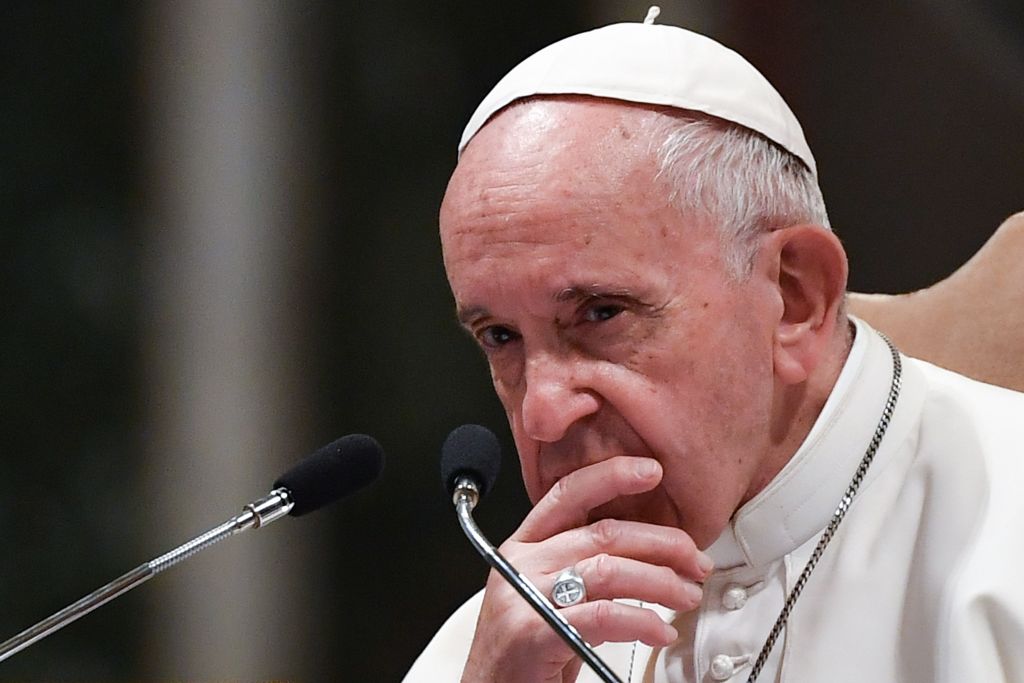 Pope Francis speaks about sex abuse scandals, Trump, and his conservatism
Pope Francis speaks about sex abuse scandals, Trump, and his conservatismSpeed Read
-
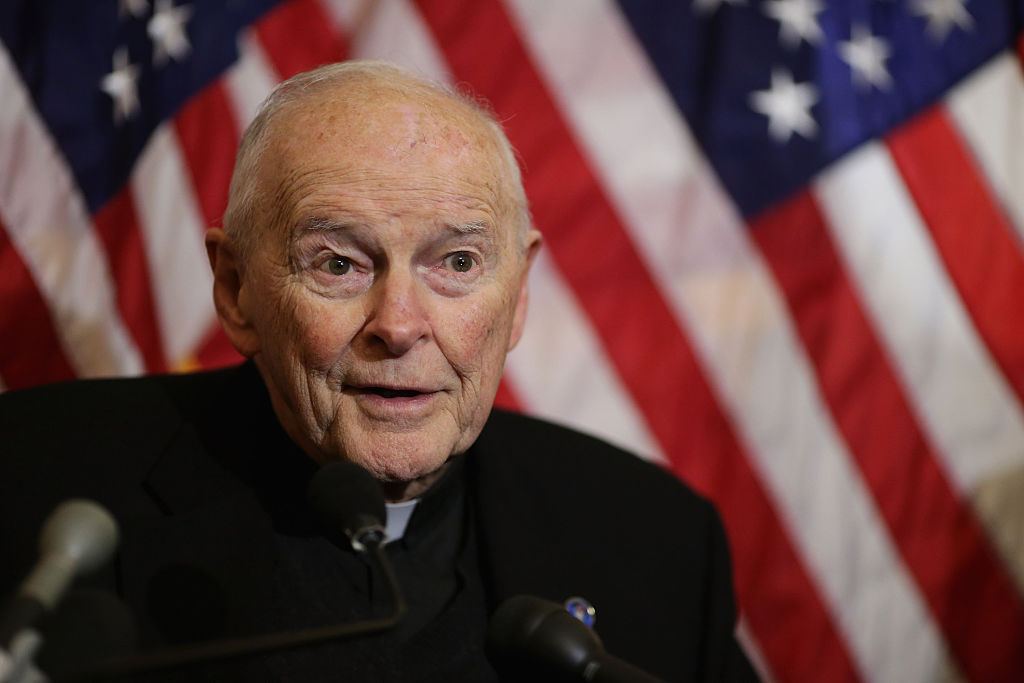 Pope Francis makes unprecedented decision in defrocking Theodore McCarrick
Pope Francis makes unprecedented decision in defrocking Theodore McCarrickSpeed Read
-
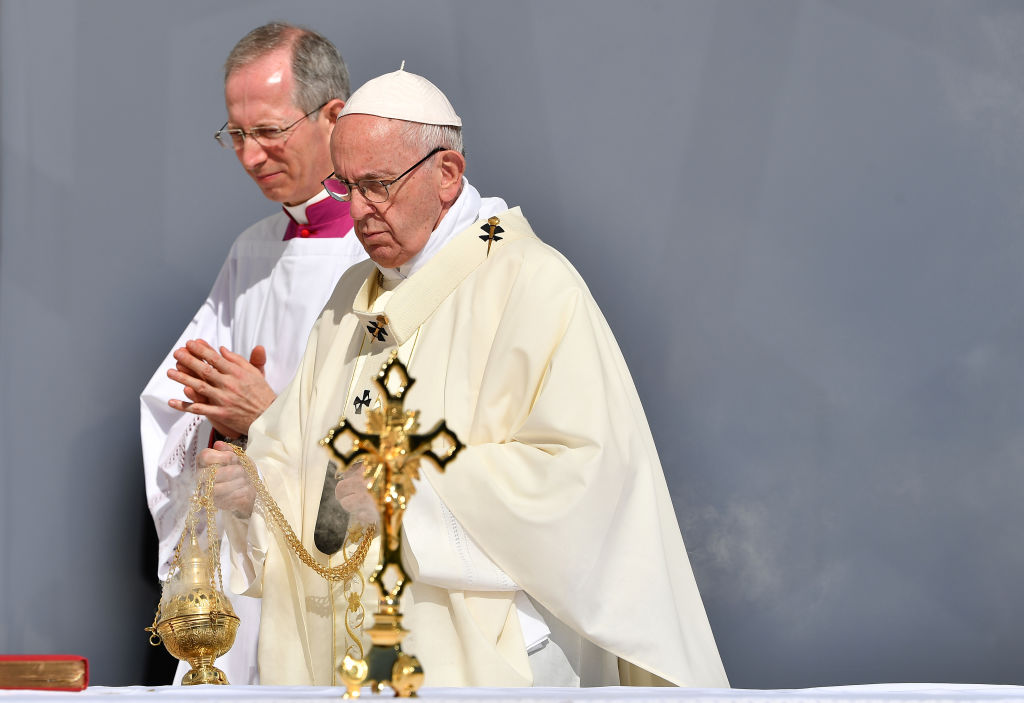 For the first time, Pope Francis publicly admits priests and bishops have sexually abused nuns
For the first time, Pope Francis publicly admits priests and bishops have sexually abused nunsSpeed Read
-
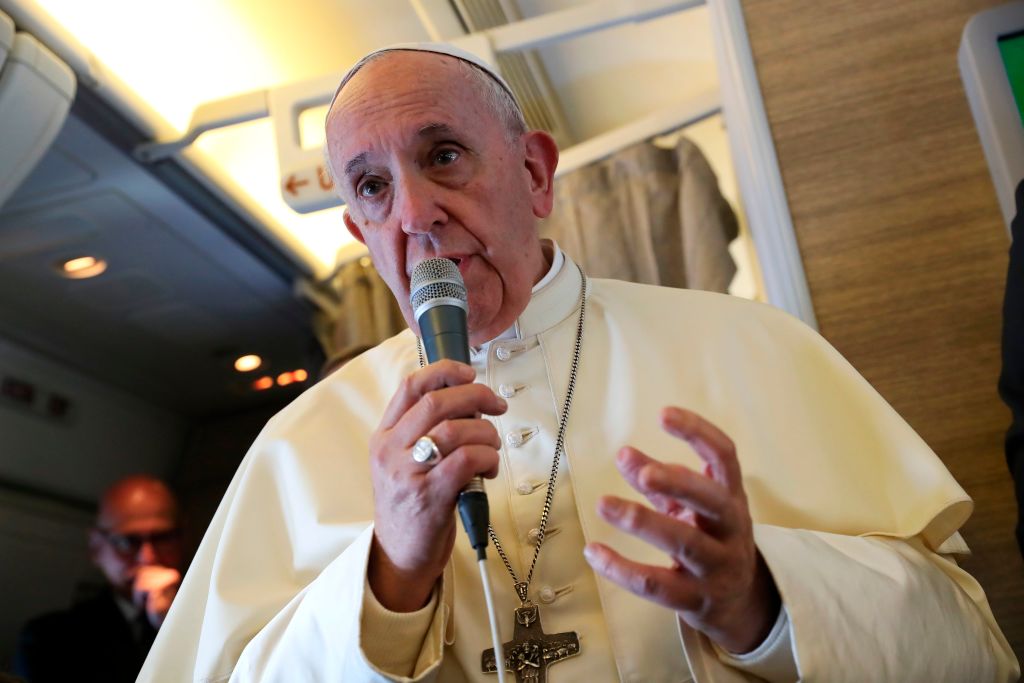 Pope Francis calls for peace in Yemen
Pope Francis calls for peace in YemenSpeed Read
-
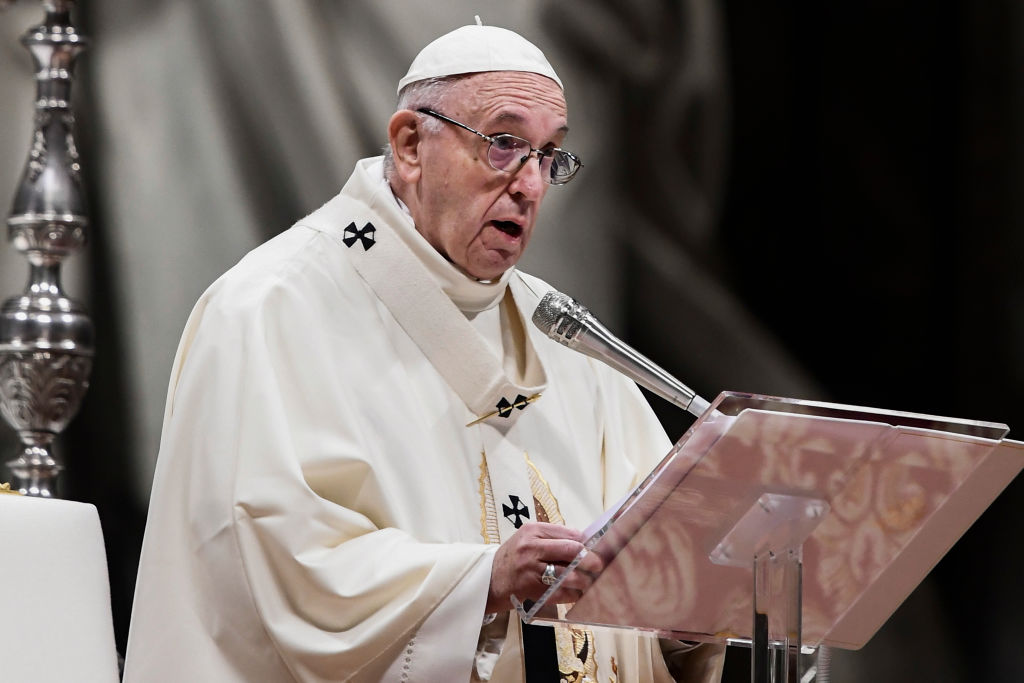 Pope Francis to abusive priests: 'Hand yourself over to human justice'
Pope Francis to abusive priests: 'Hand yourself over to human justice'Speed Read
-
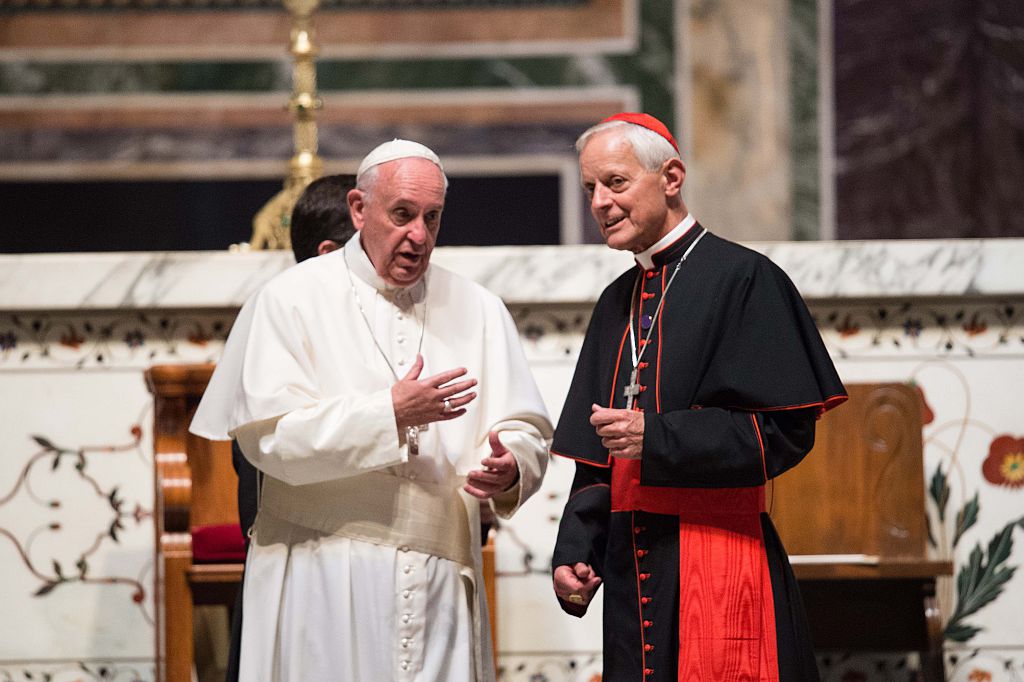 Pope Francis accepts resignation of embattled Washington Archbishop Donald Wuerl
Pope Francis accepts resignation of embattled Washington Archbishop Donald WuerlSpeed Read
-
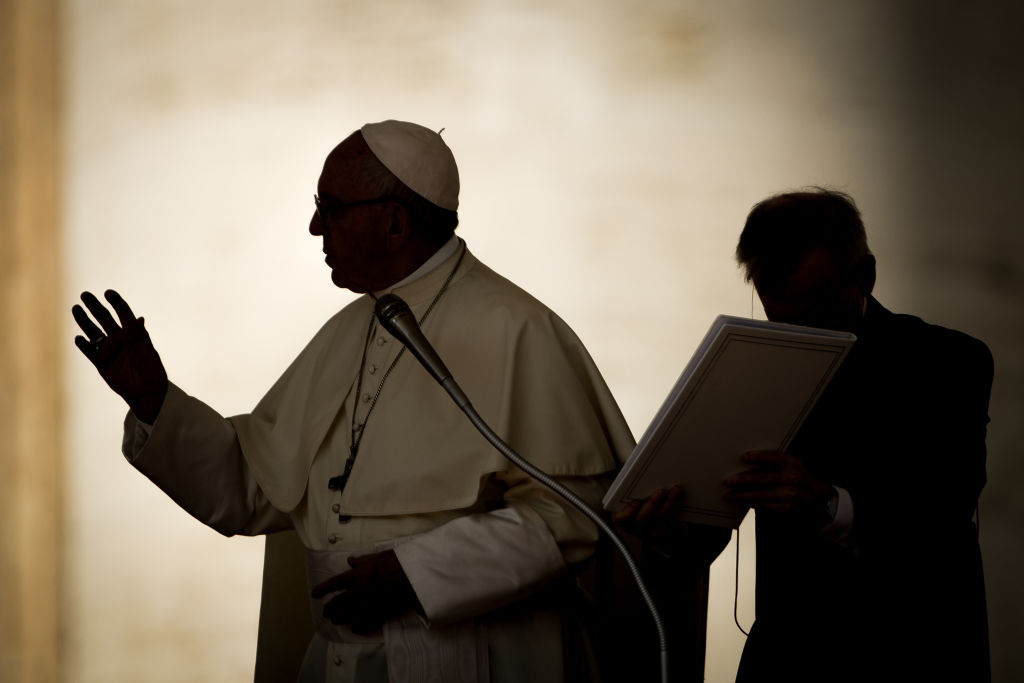 Pope Francis defrocks Chilean priest over sex abuse scandal
Pope Francis defrocks Chilean priest over sex abuse scandalSpeed Read
-
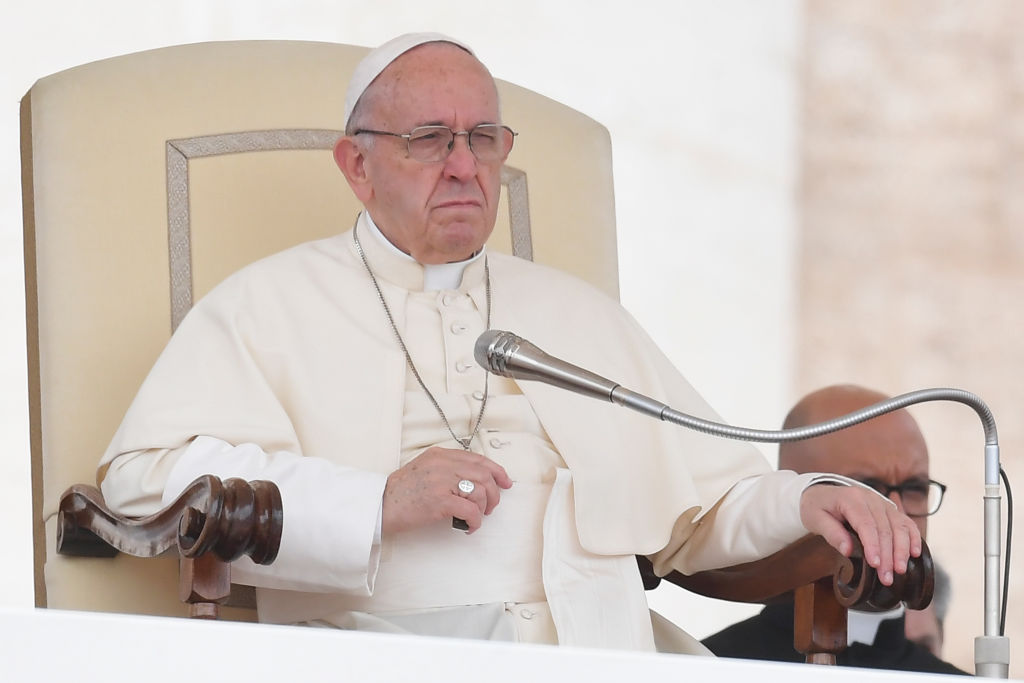 Pope Francis will meet with U.S. church leaders over clergy abuse
Pope Francis will meet with U.S. church leaders over clergy abuseSpeed Read
